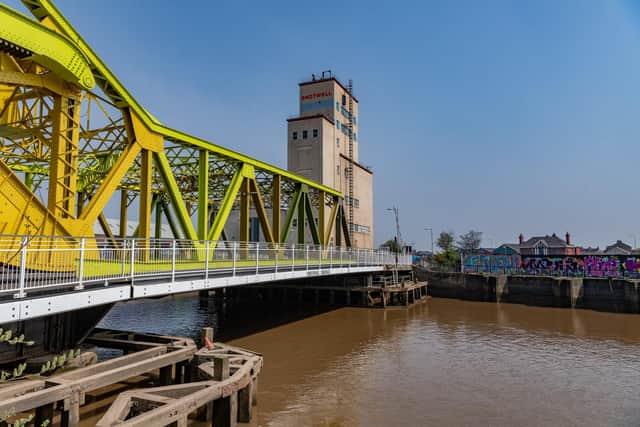50 years since abolition of The Ridings: Creation of Humberside was the most controversial alteration
To plenty, it was no laughing matter, and those with longer memories still smart at the removal of Middlesbrough from North Yorkshire, or the creation of Humberside.
The seeds of change had started three years earlier, in 1971, when Ted Heath’s Secretary of State for the Environment, Peter Walker presented a white paper on the issue of local government reform.
Advertisement
Hide AdAdvertisement
Hide AdHis arguments will sound familiar to anyone who followed the merging of districts and boroughs in North Yorkshire into one unitary authority this time last year.


In fact, his speech to the House of Commons could have been made by any of the proponents of the North Yorkshire reorganisation, albeit with a somewhat dated vernacular: “The reform of local government is vital to our total approach to the modern problems facing our various communities.
“... If we are to have the right machinery to implement proper policies within our communities it is vital that the machinery of local government comes up to date.”
The queue of MPs waiting to give their response to the white paper would have been an early indication of the level of controversy the changes were likely to spark.
Advertisement
Hide AdAdvertisement
Hide AdYet it perhaps would have seemed improbable to Mr Walker that the acrimonious rancour would continue for decades, and in some cases even be reversed 20 years later.
As the former Tory MP for Beverley James Cran would later put it, “almost the day after the decision was announced a campaign began to have Humberside abolished”.
Such was the animosity in Humberside, that boundary signs welcoming visitors to “England’s Newest County” were removed, because the cost of repairing the repeated criminal damage done to them was becoming unsustainable.
Legend has it that school textbooks bearing the troubled local authority’s insignia were frequently burned.
Advertisement
Hide AdAdvertisement
Hide AdJust over 20 years after it was founded, England’s newest county was wound up and few mementos of the existence of Humberside can now be found, with BBC Radio Humberside, first aired in 1971, and Humberside Police and Humberside Fire and Rescue Service, founded in 1974, as notable exceptions.
But memories run deep, especially when people’s identities have been questioned, and plenty have posited the failed experiment as a contributing factor in explaining why the region is the last in Yorkshire to benefit from a devolution deal.
Parts of West Yorkshire and South Yorkshire have long been operating under combined authority mayors, while the identity of York and North Yorkshire’s will be decided on May 2.
Yet local resistance on all sides of the Humber has meant cooperation has been harder to come by, and only now is a joint deal getting off the ground.
But Humberside was a lone, if vocal, exception to the rule. The vast majority of new Government structures set up in 1974 remain to this day and continue to operate successfully.
Comment Guidelines
National World encourages reader discussion on our stories. User feedback, insights and back-and-forth exchanges add a rich layer of context to reporting. Please review our Community Guidelines before commenting.